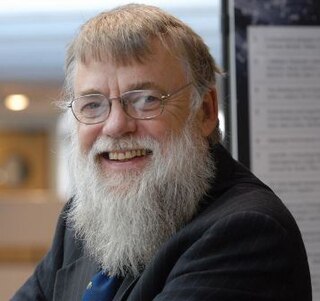Top Qs
Timeline
Chat
Perspective
School of Informatics, University of Edinburgh
Higher education institution From Wikipedia, the free encyclopedia
Remove ads
The School of Informatics is a department within the College of Science and Engineering at the University of Edinburgh in Scotland.
A major contributor to this article appears to have a close connection with its subject. (January 2025) |
The school was created in 1998 from the former department of artificial intelligence, the Centre for Cognitive Science and the department of computer science, along with the Artificial Intelligence Applications Institute (AIAI) and the Human Communication Research Centre.[citation needed]
Research in the School of Informatics draws on multiple disciplines. The school is particularly known for research in the areas of artificial intelligence, computational linguistics, systems biology, mathematical logic and theoretical computer science; but also contributes to many other areas of informatics.
The School of Informatics is ranked 20th in the world by the QS World University Rankings 2023. As of 2022, the school is ranked 1st in the UK according to CSRankings,[4] 1st in the UK in the latest 2021 Research Excellence Framework (REF) by research power,[5] and 1st in the world for natural language processing (NLP).[6]
Remove ads
Research
Summarize
Perspective









The School of Informatics was awarded a 5*A[8] in the UK HEFCE's 2001 RAE, the only computer science department in the country to achieve this highest possible rating.[8] In the 2008 RAE, the School's "Quality Profile" was 35/50/15/0/0, which means that of the over 100 Full-time equivalent (FTE) staff research outputs evaluated, 35% were found "world-leading (4*)" and 50% "internationally excellent (3*)".[9] These figures can be interpreted in a number of ways, but place the School first by volume and tied for second (following Cambridge with 45/45/10/0/0) by percentage of research rated 3* or 4*.[10]
The School has a number of research Institutes:
Institute for Adaptive and Neural Computation: ANC
ANC[11] investigates theoretical and empirical study of brain processes and artificial learning systems, drawing on neuroscience, cognitive science, computer science, computational science, mathematics and statistics.
Artificial Intelligence and its Applications Institute: AIAI
Previously known as CISA (Centre for Intelligent Systems and their Applications),[12] the Artificial Intelligence and its Applications Institute (AIAI)[13] works on the foundations of artificial intelligence and autonomous systems, and their application to real-world problems.
Institute for Language, Cognition, and Computation: ILCC
ILCC performs research on all aspects of natural language processing, drawing on machine learning, statistical modeling, and computational, psychological, and linguistic theories of communication among humans and between humans and machines using text, speech and other modalities.[14]
Institute for Computing Systems Architecture: ICSA
ICSA[15] performs research on architecture and engineering of future computing systems: performance and scalability; innovative algorithms, architectures, compilers, languages and protocols.
Institute of Perception, Action and Behaviour: IPAB
IPAB[16] links computational action, perception, representation, transformation and generation processes to real or virtual worlds: statistical machine learning, computer vision, mobile and humanoid robotics, motor control, graphics and visualization.
Laboratory for Foundations of Computer Science: LFCS
The LFCS[17] Develops and applies foundational understanding of computation and communication: formal models, mathematical theories, and software tools.
Remove ads
Senior academic staff and alumni
Current
Senior academic staff[18] include:
- Malcolm Atkinson
- Alan Bundy
- Peter Buneman
- Christopher Bishop
- Rod Burstall, emeritus
- Kousha Etessami
- Wenfei Fan
- Michael Fourman
- Igor Goryanin
- Sharon Goldwater
- Dragan Gasevic
- Jane Hillston
- Aggelos Kiayias
- Elham Kashefi
- Frank Keller
- Mirella Lapata
- Alex Lascarides
- Leonid Libkin
- Fiona McNeill
- Ursula Martin
- Johanna Moore
- Michael O'Boyle
- Gordon Plotkin
- Don Sannella
- Mark Steedman
- Perdita Stevens
- Keith Stenning
- Amos Storkey
- Austin Tate
- Sethu Vijayakumar
- Philip Wadler
- Barbara Webb
- Bonnie Webber
Former
- Donald Michie, founder of Artificial Intelligence in the UK
- Sidney Michaelson foundation chair of the former computer science department.
- Jon Oberlander
Notable alumni
Alumni of the school of informatics include:
- Geoffrey Hinton, computer scientist at Google Brain and winner of the Turing Award.[19]
- Nigel Shadbolt,[20] Chairman of the Open Data Institute (ODI) and master of Jesus College, Oxford
Remove ads
Accommodation
The 2002 Cowgate fire destroyed a number of buildings,[21] including 80 South Bridge, which housed around a quarter of the school and its renowned AI library.[22] By January 2003, space was made available in the University's Appleton Tower as a replacement.[23]
See also
References
Wikiwand - on
Seamless Wikipedia browsing. On steroids.
Remove ads



